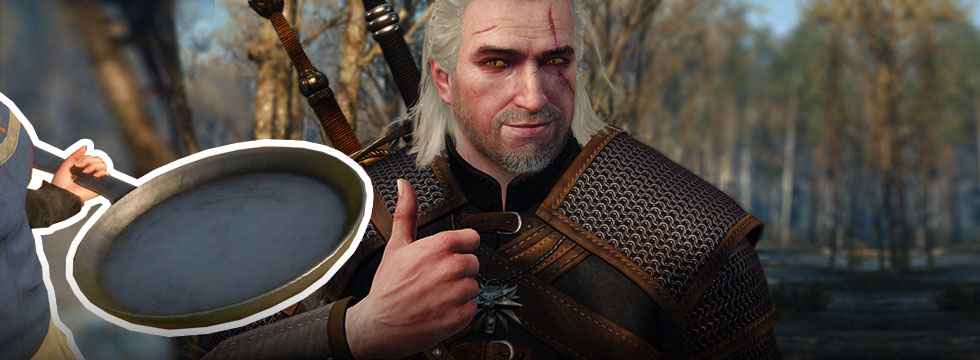Branching story is not always great. In defense of side quests

- You Don't Have to Kill Those Rats – In Defense of Side Quests
- The choice is yours
- Branching story is not always great
- The best and worst side quests
Branching story is not always great
Accustomed to convenience, spoiled by comfort, players no longer appreciate them. Expectations are higher, and everyone's expecting intriguing plots and spectacular scenes even when performing mundane tasks. This makes for interesting comparisons with fans of TV series and books, who, devoid of the comfort of choice, have to accept the way the world and story are presented. And they too often feel disappointed with wasted time. But they didn't have a choice.

If you're reading any sort of prose, you surely know most stories branch out. Writers often sidetrack from the main plot in order to set the background or explore the personalities of secondary characters. Sometimes they even do it to confuse the reader, spread false leads, and prepare a surprise. It's not unusual to have books that are hundreds of pages long, filled with additional elements that only reinforce the main plot. And, despite their function, they are mandatory – skipping pages of books isn't a common practice. That's why when you read a political fiction book, you will learn about much more than just the pivotal conflict. Tom Clancy will also tell you about stuff that happened 30 years before, also suggesting a thread about financial swindles in Russia. All that combined by a web of more or less direct correlations.
As a writer, I can tell you that the idea of optional content, for example marked by different page color, seems to me at once crazy and brilliant. I also cannot readily answer the question whether I'd be able to skip any fragment of a book. I'm just really used to read them back-to-back.
Martin Strzyzewski
It's quite similar with movies and series. Maybe you've heard of the so-called "B stories" that, for example, depict the emotional relations of the protagonist, or their family problems. These threads fulfill the vital role of deepening the universe and the characters. At the same time, they're sort of cliffhangers, postponing the crucial moments of the story, keeping the audience interested for longer. Again, there's no choice. Willy-nilly, we have to witness Rocky's trainings and his duels with Apollo Creed, as well as his personal and emotional life.
The quality of side plots in book, movies and TV shows varies. The same applies for video games. We often forget that even the weaker ones have some advantages.
It's not that bad
Side quests can make you a courier or the nemesis of rodents. They give us tasks that do not match the legendary status of the protagonist, the ultimate goal, or the achievements from fifteen minutes before. However, once you free yourself from the simplifications of the naysayers, you will have a chance to notice the positive aspects of even the weakest and simplest side quests with rats.
Stats don't lie – not many players really finish games and learn the entire stories. And even if the main threads that span a few, or few dozen hours can't keep you in front of the console or computer, we can safely assume that most of the virtual worlds are only discovered partially. If you're not a completionists, you end up exploring only portions of the lands created by devs. This means that you won't see many interesting places. We'll miss dozens of hidden secrets and details that add character to the universe. Side quests allow us to explore the places we'd normally miss, the incentivize traveling. It's also a good way to appreciate all the small details and the effort that the creators must have put in all the different landscapes and easter eggs.

Side quests offer respite from the main course of action. And as soon as they get the players' attention, they encourage experiments. After all, is there a better way to try out alternative combat strategies, new weapons and skills that we don't trust when fighting the bosses? When the fate of the world depends on your sword, you want to make sure it's the best damn sword you've got, rather than a quirky club. The servants of chaos rarely allow extravaganza. In the meantime, side quests simply give us occasion to jerk around – the stakes aren't that high, and the circumstances are a little more favorable for silliness. Perfect testing ground, no?
Many players completely miss these opportunities, focusing solely on the plot content of these additional adventures. On the one hand, they're considered a vital element of fun, paying no attention to the fact they're optional. On the other, we seem not to notice they give us so much leeway.




